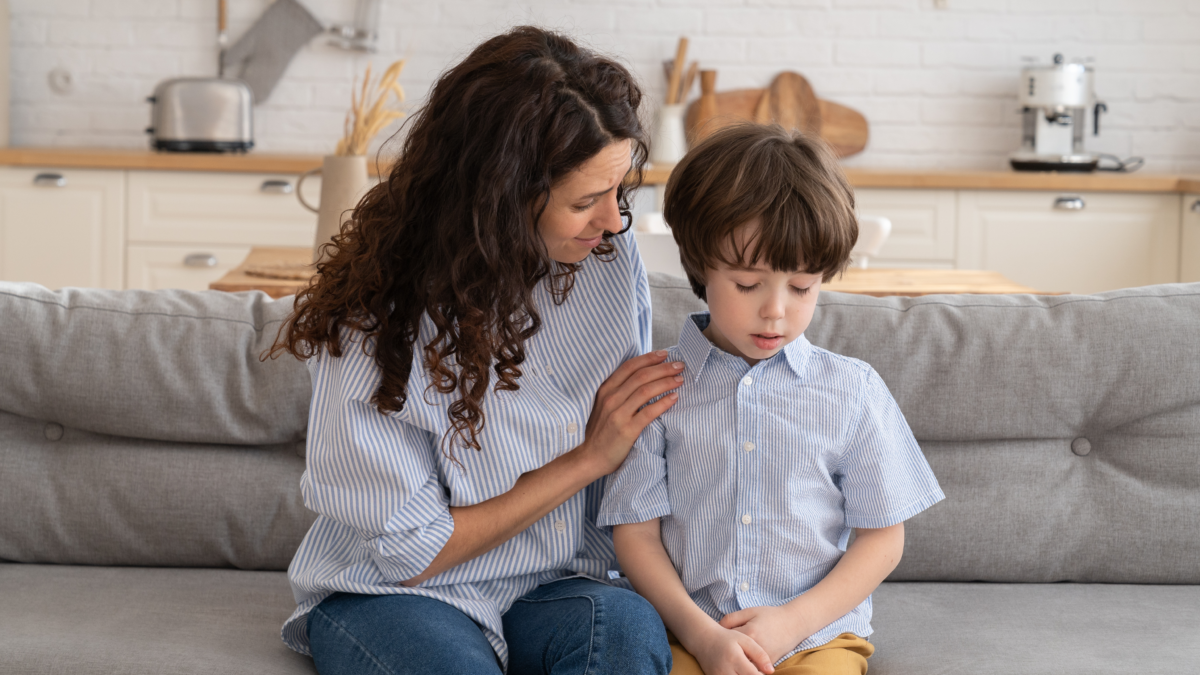Resource Roundup: How to Talk to Your Child about Violence and Scary Events

Whenever something unthinkable or unexplainable happens in the world, it can be difficult as a parent to find the right words to discuss the events with your child.
From navigating feelings of sadness or fear to finding the right level of detail for your child’s age group, dealing with trauma, violence, and senseless violence is a worry for all parents and caregivers. While it’s never an enjoyable topic, to navigate these difficult conversations, we’ve compiled a list of our favorite resources to rely on for help.
Gun Violence
How to talk to children about gun violence, PBS
PBS offers a number of helpful tips on navigating conversations on gun violence and school shootings, led by pediatric psychologist Jeff Shahidullah.
From the makers of Sesame Street, Sesame Workshop is a comprehensive resource library focused on violence, troubling times, and childhood trauma.
The collection is sorted by five key age groups: Baby (0–1), Toddler (1–3), Preschool (3–5), Kindergartener (5–6), or Big Kid (7+) and includes videos, articles, printable handouts, storybooks, workshops, and online webinars.
How to Talk to Your Kids about Gun Violence, Parenting.com
In light of recent school shootings, Parenting.com provides a list of several tips on talking to your children about gun violence—all compiled from parenting experts and psychologists.
Conflict and War
How to Talk to Your Child about Conflict and War, UNICEF
With the Israel-Hamas War, the Russia-Ukraine War, and other global events, UNICEF has developed a resource page for parents to approach the conversation of conflict and war with your child.
Talking to Children about War, The National Child Traumatic Stress Network
Another helpful fact sheet that provides information on how to approach talking to your child about war and foster resilience for the future.
Helping Kids Work Through the Fear and Consequences of Global Violence, Military Child
The Military Child Education Coalition (MCEC) has compiled a list of resources for families, educators, and other professionals from trusted sources—as well as behavioral health resources to support children during difficult, traumatic global events.
Mass Violence
For a general overview of discussing violence with your children, the National Association of School Psychologists (NASP) offers insightful tips and recommendations.
Talking to Kids about Fear and Violence, Mental Health America
Mental Health America has developed helpful resources to guide parents through discussions about fear and violence.
How to Talk to Kids About Tragedies in the Media, Child Development Institute
For young children, images and stories of people getting hurt in the media or on TV can incite anxiety and fear. The Child Development Institute has compiled helpful strategies to navigate tragedies and the impact of media on children.
In the event that your child has been impacted by an act of community violence, knowing the signs of grief and anger in young children is critical. SAMHSA has created a fact sheet with information on grief reactions to violence and the best way you can support your child.
We’re here to help.
Need help finding another relevant resource to support your child with a challenging or painful topic? We’re here to help! Reach out to us.
